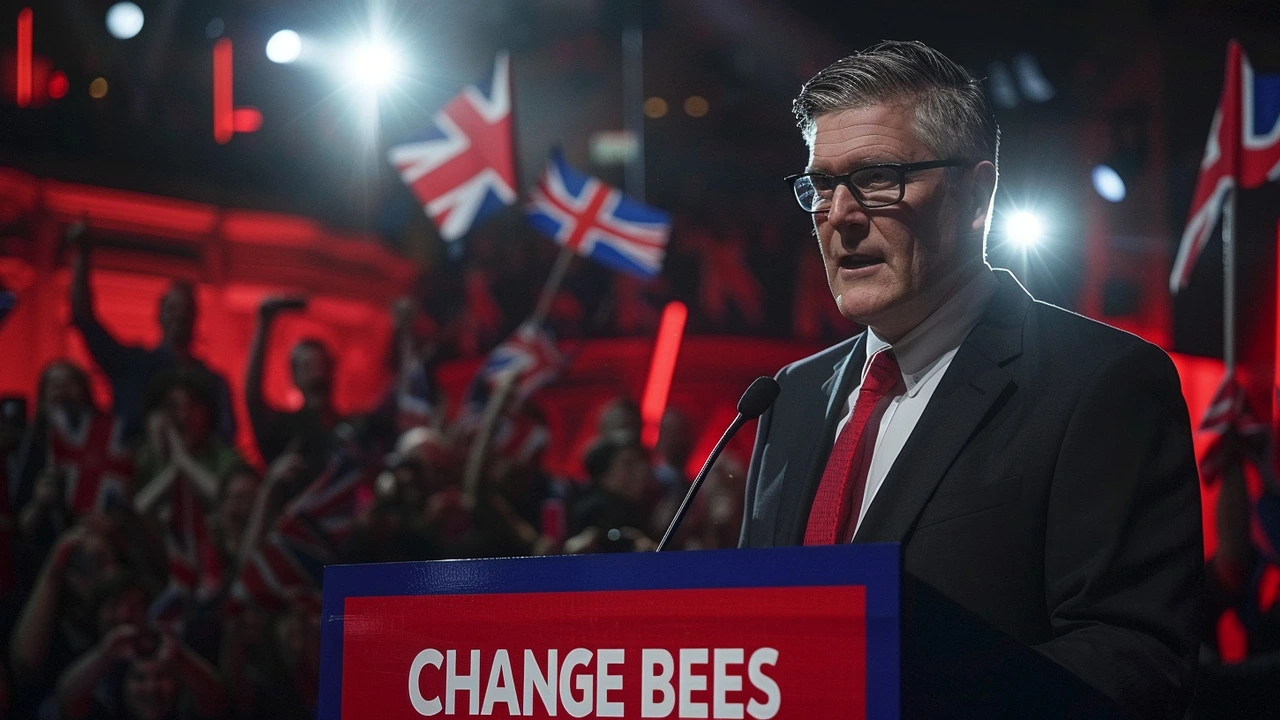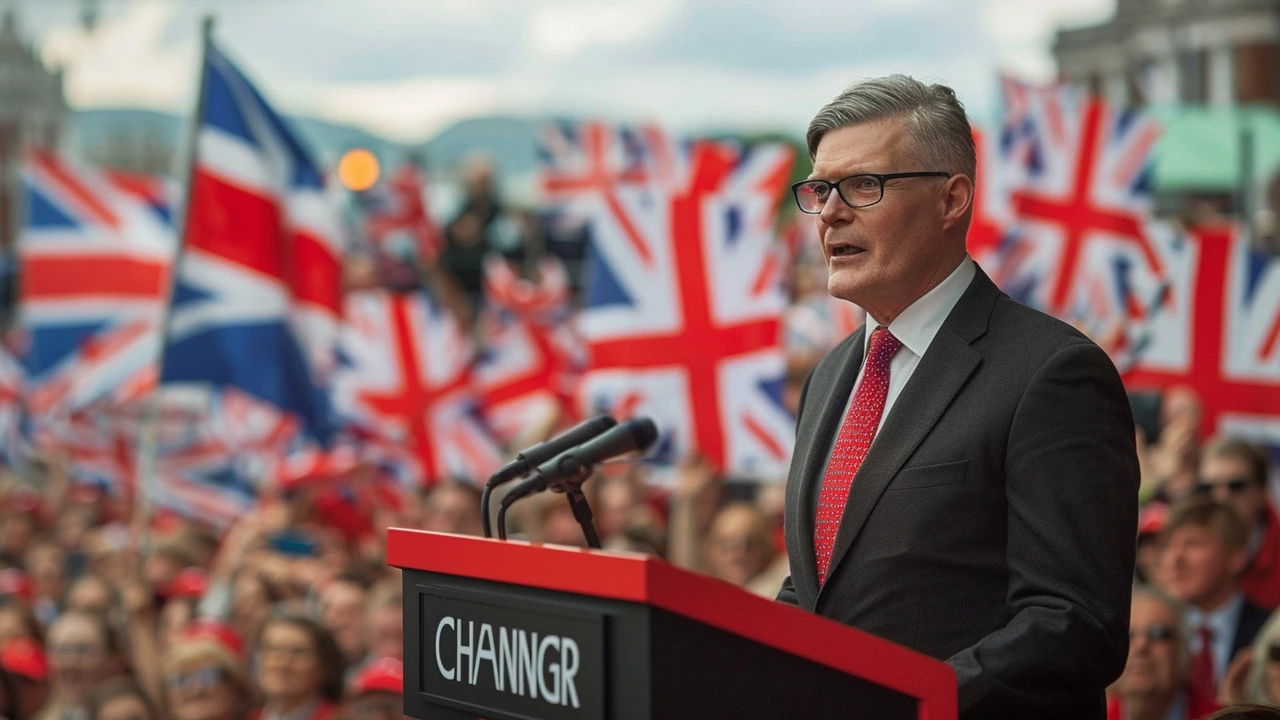Keir Starmer's Rise to Premiership
Keir Starmer, who once served as a barrister and head of the Crown Prosecution Service, has now ascended to the highest political office in the United Kingdom as Prime Minister. This leap from the courtroom to the halls of power is a testament to his sharp intellect, strategic acumen, and public appeal. After taking the reins of the Labour Party, Starmer's leadership focused on addressing the nation's most pressing issues, capturing the electorate's imagination and securing a decisive victory in the general election.
Starmer's journey into politics began with his commitment to human rights and social justice, themes that have continually informed his political agenda. His legal background granted him a meticulous approach to policy and governance, which has evidently resonated with voters tired of the status quo. His legal career laid a solid foundation, providing him with a unique perspective and a disciplined approach to leadership.
The General Election Results
The latest general election results have delivered a stunning victory for the Labour Party, with Keir Starmer at its helm. The Labour Party is projected to win 410 seats, a commanding majority that underscores the public's desire for a change in direction. In stark contrast, the Conservative Party, which has governed for the past 14 years, is anticipated to secure only 131 seats. This dramatic shift reflects widespread dissatisfaction with the incumbent government’s handling of critical issues.
The Liberal Democrats, another significant player in the political landscape, are expected to win 61 seats. Their performance highlights a reinvigorated presence in British politics, potentially aligning with Labour on key issues. The Green Party, although securing just two seats, represents an important niche focused on environmental sustainability and climate action.
Additionally, the right-wing Reform UK party, led by Nigel Farage, is projected to win 13 seats. This marks a notable entry into the parliamentary arena, though their influence is likely to be limited by the overarching Labour majority. Nonetheless, their presence indicates a persistent, albeit minority, appetite for populist policies within the electorate.

Campaign Strategies and Promises
Starmer's election campaign was a study in focused messaging and strategic outreach. Central to his campaign was the promise of 'Change'—a call to action that resonated with many voters disenchanted with the Conservative administration's failure to adequately address economic and social challenges. Starmer emphasized the rejuvenation of public services, a commitment to fiscal responsibility, and a vision of a future where the UK could thrive once again.
Public services, particularly the National Health Service (NHS), education, and social welfare programs, were key areas Starmer promised to rejuvenate. His campaign articulated a clear vision of a government that could efficiently manage resources while delivering essential services effectively. This dual focus on revitalization and fiscal prudence struck a chord with an electorate eager for competent governance.
The Labour leader's approach combined pragmatic policies with a moral compass, presenting himself as a rational yet passionate advocate for ordinary citizens. His background as a lawyer undoubtedly informed his structured and compelling arguments, making him a relatable and trustworthy figure in the eyes of many voters.
Political Implications and Future Directions
Starmer's victory signals a significant shift in the UK’s political landscape, marking a departure from Conservative dominance and a move towards progressive, centrist policies. This change comes amidst a broader European context in which populist movements have gained traction. Starmer's leadership, therefore, also represents a counterbalance to this trend, emphasizing stability and inclusive growth.
Internationally, Starmer has asserted that key policy positions, particularly the UK’s stance on the conflict in Ukraine, would remain steady. His commitment to supporting Kyiv and advocating for a ceasefire in the ongoing Israel-Hamas conflict underscores a continuation of current foreign policy priorities. This assurance of continuity provides a sense of stability amid the significant domestic political shift.
Moreover, Starmer's approach to international relations will likely emphasize diplomacy and multilateralism, seeking to reassert the UK’s role as a global leader in advocating for peace and human rights. His calls for the release of Israeli hostages by Hamas and a ceasefire in conflict zones highlight his commitment to humanitarian principles.
Challenges Ahead
Despite the resounding victory, Starmer's government faces numerous challenges. Rejuvenating public services in an era of economic uncertainty will require innovative approaches and robust fiscal management. Balancing the rejuvenation of the NHS and social services with the need for economic prudence will be a delicate task, requiring deft political maneuvering and practical policy solutions.
Furthermore, the political landscape remains fragmented, with various parties holding divergent views on key issues. Starmer will need to build a consensus across different segments of society and political spectrums to implement his vision effectively. This will necessitate not only strong leadership but also a willingness to engage in dialogue and compromise.
Additionally, addressing the public’s growing concerns over issues such as climate change, social inequality, and economic disparity will be crucial. Starmer's administration will need to craft policies that reflect the urgency of these issues while maintaining public support and confidence.

Looking Forward
As Keir Starmer steps into the role of Prime Minister, the UK stands on the brink of a new era characterized by potential transformation and renewal. His vision for change, grounded in pragmatic yet socially conscious policies, offers hope for a nation grappling with a myriad of challenges. The coming months will be critical in determining the trajectory of Starmer’s government and its ability to deliver on its promises.
The overwhelming support for Labour in the recent election is a clear mandate for change, signaling the public’s desire for a government that can address their needs and aspirations more effectively. Starmer's leadership will be closely watched both domestically and internationally as he navigates the complexities of governance and strives to build a more prosperous and equitable society.
In conclusion, Keir Starmer's election as Prime Minister marks a pivotal moment in the UK's political history. His ascent from lawyer to leader reflects a broader narrative of change and renewal, promising a future where the nation's potential is not only recognized but actively pursued. The next phase of the UK's political journey unfolds with a new captain at the helm, steering towards a horizon of hope and possibility.
